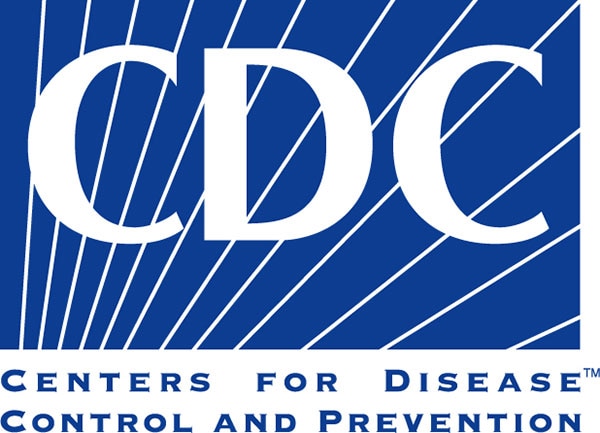1. The Center for Forecasting and Outbreak Analytics (CFA) is enhancing infectious disease response.
CFA was launched in April 2022 to provide decision support resources using forecasts, models, and outbreak analytics to improve the quality and speed of outbreak response. This is the first time the US government has created an organization specifically to provide these resources to CDC and other government entities. Public health measures should be focused to provide the greatest health benefit with the least disruption. As importantly, in emergencies they must often be formulated with imperfect information. Forecasts of the likely course of disease spread and models of how specific interventions could help control it can help individuals, businesses, and governments make better decisions, much in the way that weather science has evolved over the past century to prevent or lessen the impacts of weather-related events.
While the field has grown in recent years, domestically, infectious disease modeling has largely been confined to universities, with small teams working on specific projects. CFA will provide a central, reliable resource for decision makers while working with and financially supporting academic, government, and private partners to improve and standardize public health data and develop new and better ways to do infectious disease modeling and analytics.
2. CFA is developing innovative technological solutions that improve outbreak response.
CFA is currently supporting CDC and Executive Branch leadership, and is developing capacity to support state, tribal, local, territorial, and public partners as well as international stakeholders with decision support products that include risk assessments, forecasts, and longer-range scenario models to support outbreak response.
One of our ongoing pilot projects is the "virtual analytics platform," which improves collaboration and communication between modelers and decision-makers during an outbreak. While still in the early stages of development, this initiative equips our analysts with cloud-enabled virtual scientific workstations with pre-installed common modeling and data science software, enabling data and code sharing within and across teams, and can add additional processors and memory to an analyst's workstation as needs arise. The platform creates a virtual roundtable so CDC and other modelers can collaborate in real time, file and codeshare to support decision-makers from the earliest indicators of an outbreak. Eventually, the platform will allow decision-makers to connect live with modelers to work with the data, ask questions, and review code, enabling a real-time information exchange to better inform their decisions during an outbreak.
3. CFA's work has already improved outbreak response.
While CFA is still in the early stages of scaling our operations, we've provided decision support in the form of qualitative risk assessments and technical reports for COVID-19, mpox, acute pediatric hepatitis, polio, and Ebola outbreaks. Our technical reports deliver rapid information to decision-makers about what we know and what we don't about the current outbreak and its predicted trajectory in the US.
In the early days of an emerging infectious disease threat, there are critical decisions that can be made to slow infection growth and transmission to protect people and their communities. Models can provide us several scenarios about the trajectory of the outbreak, with a degree of confidence depending on model inputs and the quality of the data being used. CFA's work aims to help decision-makers understand what decisions are most critical and how to determine which scenarios are important to plan for.
For example, in late 2021, CFA modelers assessed there would be a significant uptick in COVID-19 cases as the Omicron variant emerged. The CFA team quickly alerted the CDC Director and other public health leaders, giving decision-makers valuable lead time to prepare for a large increase in cases and potential hospitalizations. At the same time CFA worked quickly to set up a study with academic and health system partners to assess the severity of Omicron infections in the US to improve the inputs to our models.
4. CFA is committed to the principles of innovation, collaboration, transparency, and equity.
Our work is guided by these principles to meet our mission to save lives and prevent infections through timely outbreak data forecasts and analytics. We're innovating to improve the science of disease forecasting, modeling, analytics, and communication capabilities. We're prioritizing transparency by making our data, analyses, and methods open to the public in human and machine-readable formats as much as possible so that other scientists can review and refine our science. Collaboration is critical for our work — we're partnering across government, academia, the private sector, and civil society to share resources and leverage technology to improve the nation's ability to prepare for and respond to public health threats. We're also working to advance health equity by using data to identify health disparities and identify the most powerful ways to address them.
5. CFA is a growing team.
We're rapidly working to hire qualified data scientists, epidemiologists, software developers, engineers, communicators, and other public health professionals to support our mission.
CFA has about 30 full-time employees currently but will grow to around 130 professionals at full strength. We're actively partnering across the federal, private, academic, and nonprofit sectors to expand our reach and scale our capabilities to support decision-makers at the state and local levels.
The work of CFA can be summed up in our mission — better data, better analytics, for a better response. Learn more about CFA.
Follow the CDC on Twitter
Follow Medscape on Facebook, Twitter, Instagram, and YouTube
Credits:
Lead image: Ronstik/Dreamstime
Public Information from the CDC and Medscape
Cite this: New CDC Center Focused on Forecasting the Next Outbreak: 5 Things to Know - Medscape - Feb 28, 2023.











